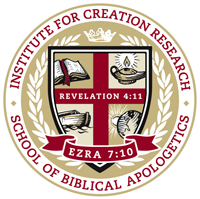God's Only Begotten Son
You are here
Home / God's Only Begott ..."For God so loved the world, that He gave His only begotten Son, that whosoever believeth in Him should not perish, but have everlasting life" (John 3:16).
One of our favorite Christmas Scripture verses is I John 4:9: "In this was manifested the love of God toward us, because that God sent His only begotten Son into the world, that we might live through Him." The marvelous incarnation in human flesh of the only begotten Son of God is not the end of the story, of course. The next verse explains that we have life through Him because God "sent His Son to be the propitiation for our sins" (I John 4:10). Our heavenly Father gives us eternal life instead of the eternal hell that we deserve because His only begotten Son died in our place for our sins. "For He hath made Him to be sin for us, who knew no sin; that we might be made the righteousness of God in Him" (II Corinthians 5:21).
The Only Begotten of the Father
Consider, though, the significance of this revelation that Jesus Christ is the Father's "only begotten" Son. This unique phrase is used with reference to the Lord Jesus just four other times, and all five verses contain vitally important truths concerning Christ. These verses are as follows:
"And the Word was made flesh, and dwelt among us, (and we beheld His glory, the glory as of the only begotten of the Father,) full of grace and truth" (John 1:14).
This is the key verse of the Incarnation, assuring us that the man Jesus, who dwelt among us for a time, was also the eternal Word who was "in the beginning with God" and that He "was God" and that "all things were made by Him" (John 1:1-3). He was God the Creator manifest in the flesh.
"No man hath seen God at any time; the only begotten Son, which is in the bosom of the Father, He hath declared Him" (John 1:18).
The Father is omnipresent, and therefore invisible to mortal eyes, but as Jesus said: "He that hath seen me hath seen the Father" (John 14:9). Men have seen and heard the Father in the person of His only begotten Son. Whenever God has been seen by men, it has been through the Son who has revealed Him.
"For God so loved the world, that He gave His only begotten Son, that whosoever believeth in Him should not perish, but have everlasting life" (John 3:16).
This verse, of course, is the most magnificent of all gospel verses; many would call it the greatest verse in the Bible. It assures us that, if we simply put our trust in our great Creator who has become man in order to die for our sins, and then to defeat death and become our Savior, our sins will be forgiven, and we shall live forever with Him.
"He that believeth on Him is not condemned: but he that believeth not is condemned already, because he hath not believed in the name of the only begotten Son of God" (John 3:18).
Other than the name of the Lord Jesus Christ, "there is none other name under heaven given among men, whereby we must be saved" (Acts 4:12). In view of all that our Creator/Savior has done for us, this verse gives clear warning that those who refuse or neglect to believe on the person and work of God's only begotten Son, will die in their sins, condemned forever by the Father whose Son they have spurned.
"God sent His only begotten Son into the world, that we might live through Him" (I John 4:9).
This great Christmas verse was discussed above and is a wonderful summary verse on salvation that Christians now often write on their Christmas cards.
The Only Begotten Son
But why was it important for the Holy Spirit who inspired these five great verses to stress that the Lord Jesus was the incarnate only begotten Son of God? Many modern English translations of the New Testament apparently do not consider it important, for they render the phrase merely as "only son." It is so rendered in the Living Bible, the Revised Standard Version, the God's Word translation, the Twentieth Century New Testament, the New Living Translation, the Moffatt, Goodspeed, and Williams translations, and many others. The New International Version renders it "one and only son." There are still a few, however--the best-known being the New American Standard and the New King James--that render it correctly (as in the King James Version) as "only begotten Son."
The Greek word for "only begotten" is monogenes, the very form of which clearly denotes "only generated." As monotheism connotes only one God and monosyllable means a word of only one syllable, so monogenes means only one genesis or only one generated--or, more simply, only begotten. It does not mean "one," or even "one and only." It is worth noting that, although Christ is called the Son, or Son of God, frequently in the New Testament, He is never (in the Greek original) called the "only" son of God.
The fact is, that to call Him the only Son of God would make the Bible contradict itself, for He is not the only Son of God, and certainly not the "one and only" Son of God. Angels are several times called the sons of God (e.g., Job 38:7) since they had no fathers, being directly created by God. Likewise, Adam was called the son of God (Luke 3:38), because he was directly created. The same applies even to fallen angels (Genesis 6:2), and even to Satan (Job 1:6), because they also were created beings. The term is also used in a spiritual sense, of course, for those who have become "new creations" in Christ Jesus by faith (II Corinthians 5:17; Ephesians 2:10; etc.). In this sense, we also are "sons of God" (e.g., I John 3:2) by special creation?not physically but spiritually.
But it is never applied in this sense to Christ, for He is not a created son of God (as the Jehovah's Witnesses and other cultists teach), but a begotten Son of God--in fact, the only begotten Son of God. He never had a beginning, for He was there in the beginning (John 1:1). In His prayer to the Father in the upper room, He spoke of "the glory which I had with thee before the world was" (John 17:5).
In that wonderful Old Testament Christmas prophecy about His coming human birth in Bethlehem (Micah 5:2), we are told that His "goings forth have been from of old, from everlasting." His human body was, indeed, "brought forth" from "she which travaileth" (Micah 5:3). But long before that, He had been everlastingly going forth from "the bosom of the Father." As noted in John 1:18, He was still "in the bosom of the Father," even while He was on Earth manifesting the Father.
These truths are beyond our full comprehension, of course, for they are all part of the great mystery of the Tri-une Godhead. Christ is "the image of the invisible God" (Colossians 1:15), for as He said: "I and my Father are one" (John 10:30).
Eternally Begotten
He is not just the only begotten Son of the Father, for He is also the eternally begotten Son of the Father. He is eternally "in His bosom," yet always "going forth" to "declare" the Father--once as the creating Word, occasionally in pre-incarnate theophanies, also through the Holy Spirit conveying God's written Word (which had been "eternally settled in heaven" [Psalm 119:89]) down to man through pinely chosen prophets, then ultimately appearing as the incarnate Word to live forever as the God/man.
The doctrine of "eternal generation" was what the older theologians called this great truth. He did not become the only Son by His virgin birth. He was the only begotten Son from eternity, "set up from everlasting" (Proverbs 8:23).
The First Begotten from the Dead
But that is not all. He was not just the only begotten Son in the beginning, He soon also became the "first begotten of the dead" in time (Revelation 1:5). He was "declared to be the Son of God with power, by the resurrection from the dead" (Romans 1:4). When Paul at Antioch preached on the resurrection, he declared that God "hath raised up Jesus again; as it is also written in the second psalm, Thou art my Son, this day have I begotten thee" (Acts 13:33).
He is the only begotten Son eternally and now the first begotten Son by resurrection, "the first fruits of them that slept" (I Corinthians 15:20). What a wonderful Savior is Jesus Christ, our Lord!
The Lord Jesus is not only the unique Son of God by eternal generation and by resurrection, but also by pine inheritance. God has "spoken unto us by His Son, whom He hath appointed heir of all things" (Hebrews 1:2).
The Uniquely Incarnate Son
His unique human birth, miraculously conceived with a pinely created body in a virgin's womb, had also marked Him as the incarnate Son of God. To Mary, the angel had said: "Fear not . . . that holy thing which shall be born of thee shall be called the Son of God" (Luke 1:30,35).
His unique righteousness, in both character and action, still further marks Him as Son of God, for He alone possessed the pine nature from the beginning. He said on one occasion: "The Son can do nothing of Himself, but what He seeth the Father do: for what things soever He doeth, these also doeth the Son likewise" (John 5:19).
He was even identified as God's Son by heavenly proclamation. "There came a voice from heaven, saying, Thou art my beloved Son, in whom I am well pleased" (Mark 1:11).
The Lord Jesus Christ is thus Son of God by miraculous conception and virgin birth, by heavenly proclamation, by His uniquely perfect human nature, by pine inheritance, and by triumphant resurrection.
But, most of all and first of all, He is Son of God by eternal generation--the Second Person of the Holy Trinity, the only begotten Son of God!
The Son Given
There is another great Christmas verse. "For unto us a child is born," known and beloved by every born-again Christian. That child was the infant Jesus, born of the virgin as prophesied hundreds of years in advance (Isaiah 7:14) in the little town of Bethlehem, as also prophesied (Micah 5:2). At the same time, "Unto us a son is given." That Son was the only begotten, eternally begotten Son of God. "And the government shall be upon His shoulder," for He holds the whole wide world in His hand! "And His name shall be called Wonderful, Counsellor, The mighty God, The everlasting Father, The Prince of Peace" (Isaiah 9:6).
As one with the everlasting Father in the Tri-une Godhead, He is also the mighty God. He is our Creator, our Redeemer, our Resurrected Savior, our King of kings and Lord of lords. "Wherefore He is able to save them to the uttermost that come unto God by Him" (Hebrews 7:25).


